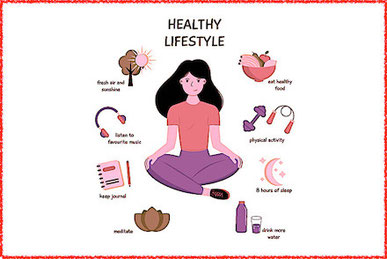
In recent years, mindfulness has become a buzzword in the health and wellness industry. It refers to the practice of paying attention to the present moment with non-judgmental awareness. Practicing mindfulness can help you reduce stress, improve mental health, and even aid in weight loss and maintenance.
In this blog, we will discuss how mindfulness can help you achieve your health goals:
Mindful Eating
Mindful eating is an approach to food that involves paying attention to your body's hunger and fullness signals, as well as the taste, smell, and texture of your food. This practice can help you make healthier food choices and avoid overeating. Studies have shown that mindful eating can help reduce binge eating and emotional eating, which are common contributors to weight gain.
Mindful eating involves being fully present while eating. This means turning off distractions like the TV or your phone and focusing on the food in front of you. Take small bites and chew slowly, savoring the taste of each bite. Pay attention to how the food makes you feel, and stop eating when you feel satisfied. Mindful eating can also help you appreciate the food you eat, which can make it easier to make healthier choices in the long run.
Stress Reduction
Stress can be a major contributor to weight gain and can make it difficult to lose weight. When you're stressed, your body produces cortisol, a hormone that can increase appetite and lead to overeating. Practicing mindfulness can help you reduce stress by helping you become more aware of your thoughts and feelings.
When you are feeling stressed, take a few minutes to focus on your breath. Sit quietly and pay attention to your breath as it moves in and out of your body. You may notice your mind wandering, but that is okay. Simply acknowledge the thought and gently bring your focus back to your breath. This practice can help you feel more relaxed and centered, which can help reduce stress and decrease cortisol production.
Increased Physical Activity
Mindfulness can also help you increase physical activity, which is essential for weight loss and maintenance. When you are mindful, you are more aware of your body and its needs. This can help you tune in to your body's signals and become more motivated to move.
Mindful movement practices like yoga and tai chi can be a great way to increase physical activity while also reducing stress. These practices involve slow, deliberate movements that can help you become more aware of your body and its movements. They can also help increase flexibility, strength, and balance, which can improve overall health and reduce the risk of injury.
Improved Body Image
One of the biggest obstacles to weight loss and maintenance is negative body image. When you don't feel good about your body, it can be difficult to make healthy choices or stick to a weight loss plan. Practicing mindfulness can help you develop a more positive body image by helping you become more accepting of your body.
When you practice mindfulness, you learn to become more aware of your thoughts and feelings without judgment. This can help you recognize negative self-talk and challenge those thoughts with more positive and realistic ones. As you become more accepting of your body, you may find it easier to make healthy choices and stick to a weight loss plan.
Last thoughts
In conclusion, practicing mindfulness can be a powerful tool for achieving your health and weight loss goals. By paying attention to the present moment with non-judgmental awareness, you can become more aware of your body's needs and make healthier choices. Mindfulness can help you reduce stress, increase physical activity, improve body image, and develop a more positive relationship with food.
So why not give it a try and see how it can benefit your health and wellness?











Write a comment